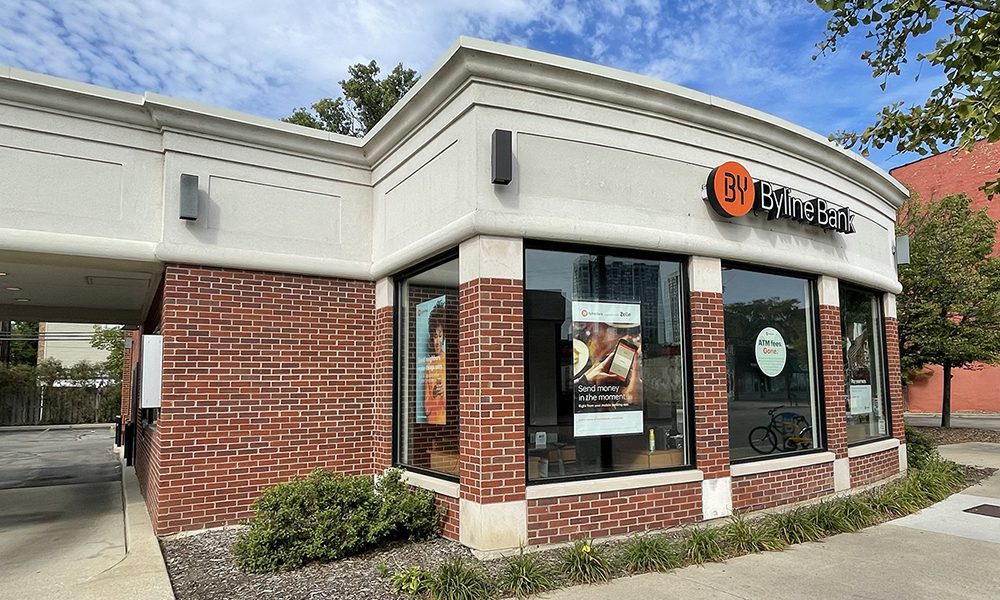Take the first step toward your financial goals with personalized support from Byline Bank.
Money Market Accounts: Your Financial Guide

You might not be as familiar with money market accounts (MMAs) as checking or savings accounts, but they may be a good option depending on how much you have in short- to medium-term savings. The potential to earn more interest, coupled with the safety and protection of insurance from the Federal Deposit Insurance Corporation (FDIC), can make MMAs an enticing alternative to traditional checking and savings accounts.
Could an MMA be the right fit for you?
What is a money market account?
A money market account (MMA) is a type of bank account, similar to a checking or savings account. But MMAs often offer higher interest rates than savings accounts and give you a debit card or checks that you can use to easily access the money in your account. The combination makes them an attractive and flexible option for people who can meet the minimum balance requirement.
Key features of money market accounts
An MMA’s terms and conditions can vary depending on the bank, but these types of accounts tend to share a few features:
Relatively high interest rates: “Money market accounts typically offer a higher interest rate than traditional savings accounts,” says David Sweeney, Vice President, Region Manager, at Byline Bank. The interest rate—and resulting annual percentage yield (APY)—on an MMA is set at the issuing bank’s discretion and may change at any time, up or down, just like the interest rate on a savings or checking account.
Minimum and daily balance requirements: MMAs “typically have a higher minimum balance requirement than savings accounts,” Sweeney adds. You might need to meet a minimum balance requirement when you open the account and maintain a daily balance to earn interest that month or avoid a monthly fee.
FDIC insurance: If you open an MMA at an FDIC-insured bank—which most banks are—the insurance will cover up to $250,000 per ownership category at that bank. For example, if one person is the sole owner of a checking account and an MMA at the same bank, these two accounts would fall under the ownership category “Single Accounts,” and as a result, insurance would cover up to $250,000 of the combined balance.

Even with a check or debit card, there has historically been a limit to how often you can easily withdraw money from an MMA.
MMAs are subject to the Federal Reserve’s Regulation D, which determines how banks classify their accounts and creates rules governing those accounts. MMAs are classified as savings deposit accounts, and the regulation limits account holders from making more than six fee-free withdrawals each month, not counting withdrawals that you request at a branch, at an ATM, by mail or by phone.
However, the Federal Reserve allowed banks to suspend the six-withdrawal limit in response to the pandemic, and many banks haven’t reinstated it. Even with banks that still impose the limit, Sweeney points out that it’s now easy to go online and transfer funds from an MMA to a checking account before withdrawing it.
Money market accounts vs. money market funds
MMAs are sometimes confused with money market funds (MMFs), likely because the names are so similar. However, MMAs are a type of bank account—you’re not investing or risking the money you put into the account, and it’s covered by FDIC insurance, up to the allowable insurance limit.
“Typically, an MMF is done through an investment account,” Sweeney says. MMFs are a type of mutual fund. And although they’re considered very safe investments, your funds aren’t insured and you could potentially lose money that you invest in an MMF.
The main pros and cons of money market accounts
Easy fund access might still be a top priority for some people, but Sweeney says the main draw of MMAs is the potential to earn more interest—particularly for those who meet certain balance thresholds. “A bank may offer a couple of different money market accounts,” Sweeney says. “The one that pays the most may have a higher minimum balance.”
For example, a money market account might require a $5,000 minimum deposit when you open the account and a $5,000 minimum daily balance to avoid fees. Another might have a higher APY, but you have to deposit and maintain $25,000 in the account.
Depending on the account’s terms, you might have to pay a monthly fee if your balance drops below the daily limit—or, you might receive less (or no) interest for that month. In addition, MMA interest rates are set at the issuing bank’s discretion and may change at any time.
[table “58” not found /][table “59” not found /]







